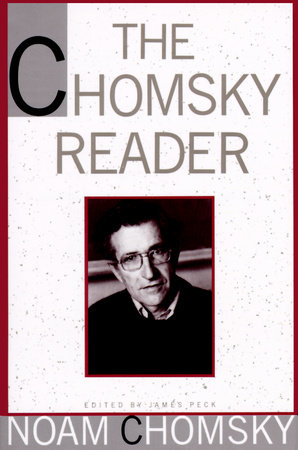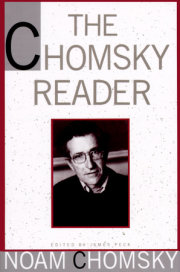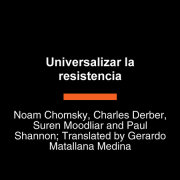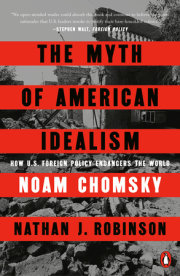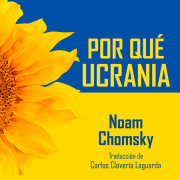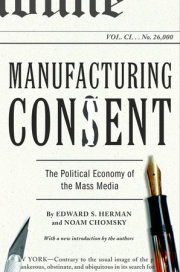The Responsibility of Individuals (1966) Twenty years ago, Dwight Macdonald published a series of articles in
Politics on the responsibilities of peoples and, specifically, the responsibility of intellectuals. I read them as an undergraduate, in the years just after the war, and had occasion to read them again a few months ago. They seem to me to have lost none of their power or persuasiveness. Macdonald is concerned with the question of war guilt. He asks the question: to what extent were the German or Japanese people responsible for the atrocities committed by their governments? And, quite properly, he turns the question back to us: to what extent are the British or American people responsible for the vicious terror bombings of civilians, perfected as a technique of warfare by the Western democracies and reaching their culmination in Hiroshima and Nagasaki, surely among the most unspeakable crimes in history? To an undergraduate in 1945-1946—to anyone whose political and moral consciousness had been formed by the horrors of the 1930s, by the war in Ethiopia, the Russian purge, the “China incident,” the Spanish Civil War, the Nazi atrocities, the Western reaction to these events and, in part, complicity in them—these questions had particular significance and poignancy.
With respect to the responsibility of intellectuals, there are still other, equally disturbing questions. Intellectuals are in a position to expose the lies of governments, to analyze actions according to their causes and motives and often hidden intentions. In the Western world at least, they have the power that comes from political liberty, from access to information and freedom of expression. For a privileged minority, Western democracy provides the leisure, the facilities, and the training to seek the truth lying hidden behind the veil of distortion and misrepresentation, ideology, and class interest through which the events of current history are presented to us. The responsibilities of intellectuals, then, are much deeper than what Macdonald calls the “responsibility of people,” given the unique privileges that intellectuals enjoy.
The issues that Macdonald raised are as pertinent today as they were twenty years ago. We can hardly avoid asking ourselves to what extent the American people bear responsibility for the savage American assault on a largely helpless rural population in Vietnam, still another atrocity in what Asians see as the “Vasco da Gama era” of world history. As for those of us who stood by in silence and apathy as this catastrophe slowly took shape over the past dozen years, on what page of history do we find our proper place? Only the most insensible can escape these questions. I want to return to them, later on, after a few scattered remarks about the responsibility of intellectuals and how, in practice, they go about meeting this responsibility in the mid-1960s.
It is the responsibility of intellectuals to speak the truth and to expose lies. This, at least, may seem enough of a truism to pass without comment. Not so, however. For the modern intellectual, it is not at all obvious. This we have Martin Heidegger writing, in a pro-Hitler declaration of 1933, that “truth is the revelation of that which makes a people certain, clear, and strong in its action and knowledge”; it is only this kind of “truth” that one has a responsibility to speak. Americans tend to be more forthright. When Arthur Schlesinger was asked by
The New York Times, in November 1965, to explain the contradiction between his published account of the Bay of Pigs incident and the story he had lied; and a few days later, he went on to compliment the
Times for having suppressed information on the planned invasion, in “the national interest,” as this was defined by the group of arrogant and deluded men of whom Schlesinger gives such a flattering portrait in his recent account of the Kennedy administration. It is of no particular interest that one man is quite happy to lie in behalf of a cause which he knows to be unjust; but it is significant that such events provoke so little response in the intellectual community—no feeling, for example, that there is something strange in the offer of a major chair in humanities to a historian who feels it to be his duty to persuade the world that an American-sponsored invasion of a nearby country is nothing of the sort. And what of the incredible sequence of lies on the part of our government and its spokesmen concerning such matters as negotiations in Vietnam? The facts are known to all who care to know. The press, foreign and domestic, has presented documentation to refute each falsehood as it appears. But the power of the government propaganda apparatus is such that the citizen who does not undertake a research project on the subject can hardly hope to confront government pronouncements with that fact.
The deceit and distortion surrounding the American invasion of Vietnam are by now so familiar that they have lost their power to shock. It is therefore well to recall that although new levels of cynicism are constantly being reached, their clear antecedents were accepted at home with quiet toleration. It is a useful exercise to compare government statements at the time of the invasion of Guatemala in 1954 with Eisenhower’s admission—to be more accurate, his boast—a decade later that American places were sent “to help the invaders.” Nor is it only in moments of crisis that duplicity is considered perfectly in order. “New Frontiersmen,” for example, have scarcely distinguished themselves by a passionate concern for historical accuracy, even when they are not being called upon to provide a “propaganda cover” for ongoing actions. For example, Arthur Schlesigner describes the bombing of North Vietnam and the massive escalation of military commitment in early 1965 as based on a “perfectly rational argument”: “ . . . so long as the Vietcong thought they were going to win the war, they obviously would not be interested in any kind of negotiated settlement.” The date is important. Had the statement been made six months earlier, one could attribute it to ignorance. But this statement appeared after months of front-page news reports detailing the United Nations, North Vietnamese, and Soviet initiatives that preceded the February 1965 escalation and that, in fact, continued for several weeks after the bombing began, after months of soul-searching by Washington correspondents who were trying desperately to find some mitigating circumstances for the startling deception that had been revealed. (Chalmers Roberts, for example, wrote with unconscious irony that late February 1965 “hardly seemed to Washington to be a propitious moment for negotiations [since] Mr. Johnson . . . had just ordered the first bombing of North Vietnam in an effort to bring Hanoi to a conference table where bargaining chips on both sides would be more closely matched.”) Coming at this moment, Schlesinger’s statement is less an example of deceit than of contempt—contempt for an audience that can be expected to tolerate such behavior with silence, if not approval.
To turn to someone closer to the actual formation and implementation of policy, consider some of the reflections of Walt Rostow, a man who, according to Schlesinger, brought a “spacious historical view” to the conduct of foreign affairs in the Kennedy administration. According to his analysis, the guerilla warfare in Indochina in 1946 was launched by Stalin, and Hanoi initiated the guerilla war against South Vietnam in 1958 (
The View from the Seventh Floor, pp. 39 and 152). Similarly, the Communist planners probed the “free world spectrum of defense” in Northern Azerbaijan and Greece (where Stalin “supported substantial guerilla warfare”—pp. 36 and 148), operating from plans carefully laid in 1945. And in Central Europe, the Soviet Union was not “prepared to accept a solution which would remove the dangerous tensions from Central Europe at the risk of even slowly staged corrosion of communism in East Germany” (p. 156).
It is interesting to compare these observations with studies by scholars actually concerned with historical events. The remark about Stalin’s initiating the first Vietnamese war in 1946 does not even merit refutation. As to Hanoi’s purported initiative of 1958, the situation is more clouded. But even government sources concede that in 1959 Hanoi received the first direct reports of what Diem referred to as his own Algerian war, and that only after this did they lay their plans to involve themselves in this struggle. In fact, in December 1958, Hanoi made another of its many attempts—rebuffed once again by Saigon and the United States—to establish diplomatic and commercial relations with the Saigon government on the basis of the status quo. Rostow offers no evidence of Stalin’s support for the Greek guerillas, who, from his point of view, were upsetting the satisfactory postwar imperialist settlement.
Copyright © 1987 by Noam Chomsky. All rights reserved. No part of this excerpt may be reproduced or reprinted without permission in writing from the publisher.

